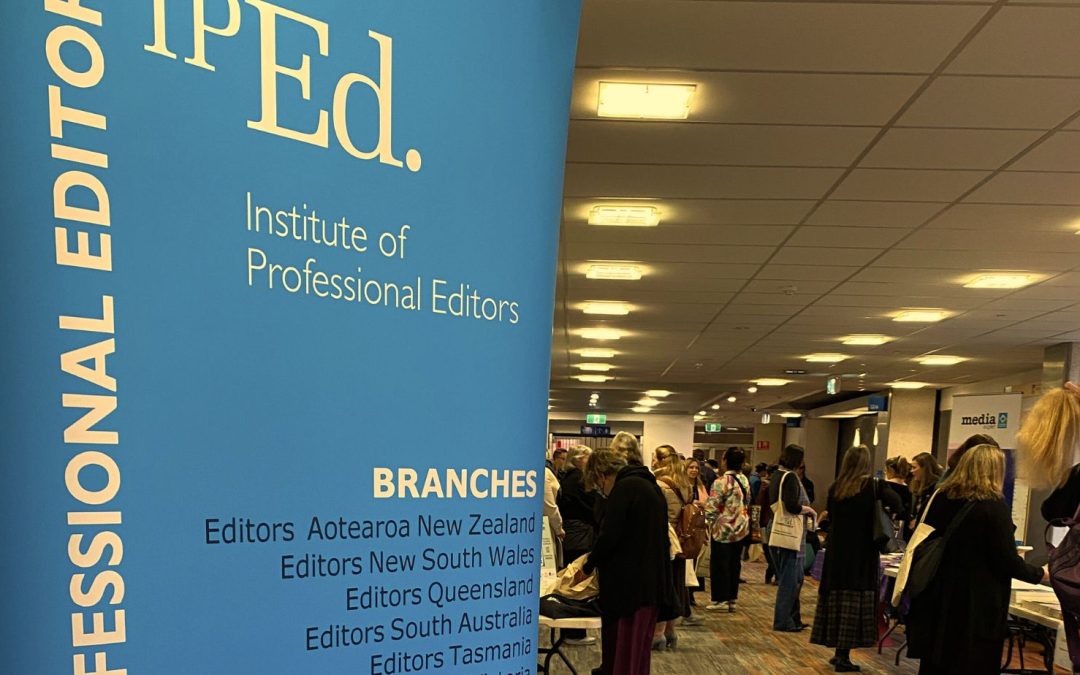By Rachel Marchesi
As a fresh-faced editor, new to IPEd, I was thrilled to have a chance to meet and learn from my mentors and peers in person. Subsidised to attend the conference by Editors WA, I enjoyed attending one full day – enough to provide me with plenty of insights and reflections.
For me, coming into the fold post-COVID, the conference represented something else – a long-awaited opportunity for professional development and real-world connections beyond the screen.
Keynote speaker Dr Eugen Bacon reminded us how both writing and editing allow us to operate as agents of change. Her descriptions of the editor as a giver, mentor and activist were particularly insightful, underscoring the innate power we wield over any text. As a new editor, this reminder was welcome. Her lessons will shape how I view my work and my responsibilities towards my clients (and myself) as I grow.
Later in the morning, we had an opportunity to consider how the spoken word has evolved over time with Kerry Davies AE and Roly Sussex. I enjoyed the discussions on working with dynamic, realistic communication that is reflective of the world around us, however far it might have shifted over the centuries.
Michèle Drouart, IPEd Honorary Life Member and fellow WA branch member, invited us to consider the real form and shape of structure in narrative writing. This was especially fascinating as a person who is perhaps too used to working at the micro level, and I found it all the more inspiring to learn from Michèle as she endeavoured to share as much of her expertise as possible with us during question time.
As a budding editor, I felt it vital to sit in and learn about the impacts of generative AI on the profession. Sharon Mullins’ discussion instilled a tentative sense of hope and relief. In exploring how AI actually operates when faced with manuscripts, at least for the moment, we got to see another perspective beyond the death knells reductively sounded in the media. The research is ongoing as AI evolves, and it is with more confidence and professional curiosity that we will watch this space.
And finally, Emily Hart and Margot Lloyd of Pink Shorts Press rounded out the seminars with a refreshing view on the publishing industry. In starting their own press with women at the fore and passion behind every decision, they left me with the reminder that small, intentional presses and publishers are at the very heart of creative culture in their communities. In fact, I stumbled happily across their books in a local bookstore several days later.
My overall impression of Thursday’s program was one of reconnection. While I made some new friends and learned from new mentors, I left the conference feeling more deeply aligned with the importance of what we do. It was a timely reminder that we are valued and important, perhaps now more than ever. Even against the backdrop of tech-saturated workflows and generative AI, there is a need for creativity, for humanity and for editors who can see the shape of things. As Eugen told us, the work that we do ultimately reminds us of our own humanity.
Rachel Marchesi is a member of the Editors WA Committee and the Mentoring Standing Committee. She is a freelance editor for international self-publishing authors across speculative fiction. Rachel joined IPEd as a student member in September 2024.

